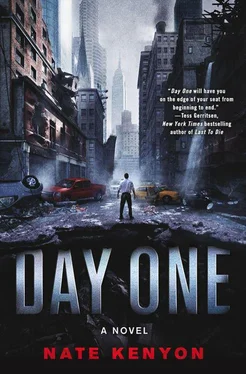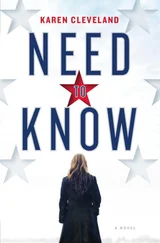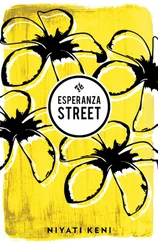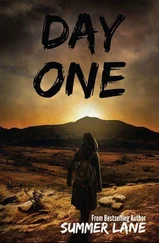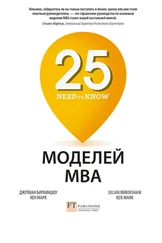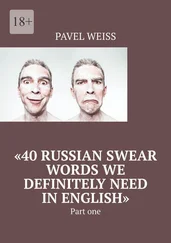He craned his neck to look skyward but could see nothing through the haze that thickened the air. If the drone was there, it remained out of sight.
He scanned the mass of cars, looking for a way through. The globe that sat in front of Trump Tower had been dislodged by a bus and had rolled halfway toward the circle. He thought he could squeeze by on the right, past the subway entrance and onto Broadway.
Hawke worked the truck through the gap, scraping the passenger-side mirror off on the globe. Beyond it, the street was less jammed with traffic. He kept the truck moving fast, turning on 60th Street past Jazz at Lincoln Center, its famous sign knocked even farther askew, and one of the ubiquitous Starbucks. A clothing store’s huge windows had shattered, mannequins lying toppled and broken within glittering shards like jewels. Movement from somewhere within the store caught Hawke’s eye, but he turned away, not wanting to see anything more.
* * *
Hawke hit Columbus and swung left with bald tires screeching, avoiding another nasty pileup around the steps of the Church of St. Paul the Apostle. A small group of people had gathered on the steps, their heads bowed in prayer. A young boy not much older than Thomas stood by his mother’s side and stared solemnly at the truck as it went by.
Another explosion had ruptured the surface of Columbus a little over a block away. Smoke poured skyward; there was no way through. “Hang on,” Hawke said, making a hard right onto 59th Street. There were more signs of looting here, windows smashed, the contents of buildings strewn on the sidewalks like intestines trailing from a stomach wound. Someone had spray-painted CHECKPOINT in dripping red letters across the front of an apartment building with an arrow pointing west up 59th.
As they approached Roosevelt Hospital, Hawke slowed the truck to a crawl. An ambulance stood abandoned, parked sideways across the street, rear doors open. He flashed back to Lenox Hill and a deep chill settled over him, the feeling of isolation, dizziness, hallucinations of the dead clawing at his shoulders. He had sensed the shadowy figure of a woman in the morgue. Doe had been in his mind even then, although he couldn’t have known what she was, at least not entirely. Intuition. Weller had talked about Doe back in his office, rambling about a conspiracy, Eclipse coming after him because of her. The pieces had all been there; Hawke just hadn’t put them all together.
But the ambulance wasn’t the only thing that had slowed his approach. Beyond it were three cop cars, lights flashing and doors open, blocking the hospital’s emergency entrance. On the street in front of the cars were construction sawhorses and an A-frame sign on which someone had written CHECKPOINT FULL SEEK OTHER ROUTES in black marker.
Hawke stopped the truck just before the sign. They stared through the windshield at the intersection of West 59th and Tenth. “Holy Christ,” Vasco said.
A crowd of several hundred people had gathered just beyond the hospital, swelling up through the intersection and spilling out over sidewalks, facing off against a line of NYPD officers in full riot gear blocking their access. Hawke could hear the sound of the crowd like an angry ocean breaking against rock. He saw bottles and rocks come flying above the heads of those closest to the police as they surged forward. Fires flared through windows, and several cars were smoldering.
The three people in the truck cab didn’t move or speak for a long moment as they watched the drama unfold through the pitted windshield. Just a couple of blocks away were Fordham University and Lincoln Center, the heart of art and culture in the city, while in front of the John Jay College of Criminal Justice a group of men was rocking another car, trying to flip it over.
The sound rose, a gathering storm rumbling, about to break. The row of police advanced, guns out and shields up. More people threw things overhead, and as a flaming bottle exploded at a policeman’s feet and crawled up his front, turning him into a teetering inferno, the others began firing wildly into the crowd. Several people went down under the volley of bullets, others surging forward to replace them, brandishing makeshift weapons.
“We can’t get through on Columbus,” Young said, “not with that hole in the street—”
Hawke glanced in the rearview mirror. A squad car had turned in behind them, lights flashing. The driver’s door opened and a cop in riot gear stepped out, his face hidden behind the glare of his visor, gun swinging up as he assumed a shooter’s stance behind the car door.
“We’ve got company,” Hawke said.
“Out of the vehicle!” the cop shouted. “Hands where I can see them!”
Vasco looked behind them. “Oh shit,” he said. “Go! Now!”
Hawke floored the accelerator and the truck surged forward, knocking the A-frame down and bouncing over it. As they approached the front Roosevelt entrance several cops from the riot line swung around to face them, guns up. Hawke cut left between huge pillars toward a small, open courtyard in front dotted with trees, the only space he could fit through without running anyone down. The other side was blocked with cars. Hawke heard more gunfire; he ducked his shoulders, but the rear window remained intact as he jumped the curb and smashed through a metal fence, clipped a bench and narrowly avoided another group of people running in their direction.
They rattled down a short flight of concrete steps, and Hawke felt something give in the truck’s undercarriage as they crashed through the fence on the other side and careened the wrong way south down Tenth Avenue. He pushed the accelerator to the floor, ignoring a terrible grinding noise under his feet. The wheel was shaking badly in his hands, numbing his fingers.
“Slow down,” Young said. “The wheel’s going to come off.”
Hawke glanced in the rearview mirror, saw the crowd rapidly receding and no signs of anyone coming after them. But he didn’t ease up on the gas. The street was wide here, enough to avoid the abandoned cars, even at a higher speed. He was done slowing down; he would run this truck into the ground.
The skyscrapers downtown rose in front of them, black smoke billowing upward. As they passed West 57th, Hawke looked right and caught a glimpse of the Hudson, winking like a shining steel ribbon in the distance. It brought a memory of their summer trip to Point Pleasant Beach, Thomas tottering down the newly restored Jenkinson’s Boardwalk after their adventures in the water, his skin losing the bluish tint of cold as he took in the rides, games and food vendors, the smells wafting over him, gulls crying overhead. Thomas ate French fries and ice cream and was exhausted by one, and they had left early, he and Robin talking quietly as Thomas slept in the backseat.
What did we talk about? The memory plagued Hawke, haunted him. He couldn’t remember. For the life of him, he couldn’t remember anything else.
The Hudson was gone again, hidden behind brick buildings. The open water was freedom, almost close enough to touch. He thought of Cuttyhunk Island, isolated, self-contained, a place to hide. He would get them out safely. He imagined finding Robin and Thomas waiting for him and tried to force his mind to hold on to it, but the thought dissolved once again into a vision of their apartment in shambles, blood on the walls, his family gone, fading away into the abyss.
The memory of finding Lowry crouched in the darkness of the basement came back to him. Lowry, staring at old family photos and thinking about… what? Hawke squeezed the steering wheel so hard that his hands started to ache. Whatever had happened to Robin was his fault. He hadn’t acted in time, and now his family was paying the price.
Читать дальше
